BMW 1 Series VS Mercedes Sprinter Transporter
BMW 1 Series
The BMW 1 Series stands out with its dynamic design that embodies both elegance and sportiness, making it an attractive choice for urban driving. Its interior offers a premium feel, combining quality materials with the latest in technological features to enhance comfort and connect drivers. Under the bonnet, a range of efficient engines ensures a responsive and enjoyable driving experience, balancing power with practicality.
more informationMercedes Sprinter Transporter
The Mercedes-Benz Sprinter Transporter is renowned for its versatility and reliability, making it a popular choice for businesses across various industries. Featuring a spacious and intelligently designed interior, it offers ample cargo space while ensuring comfort for the driver. With a reputation for durability and advanced technology, the Sprinter continues to set standards in the commercial vehicle sector.
more information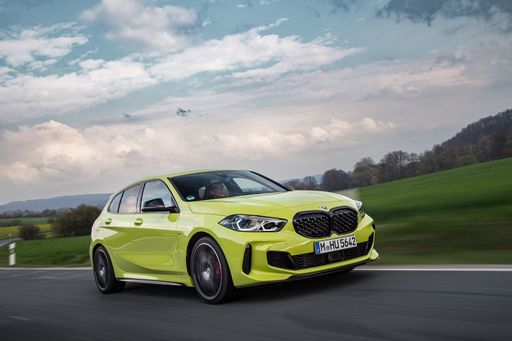 @ press.bmwgroup.com
@ press.bmwgroup.com
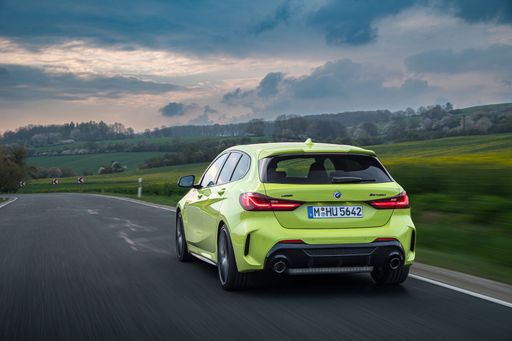 @ press.bmwgroup.com
@ press.bmwgroup.com
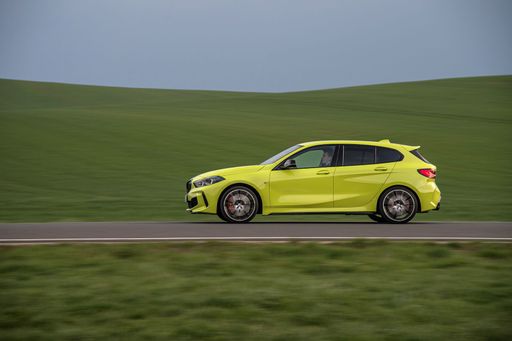 @ press.bmwgroup.com
@ press.bmwgroup.com
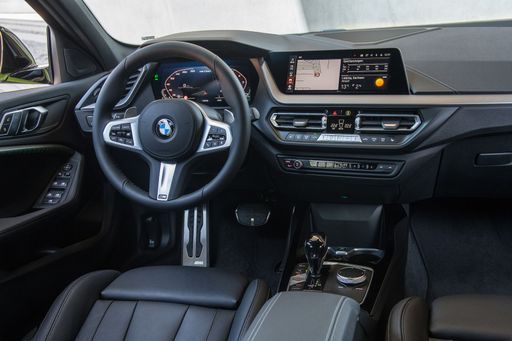 @ press.bmwgroup.com
@ press.bmwgroup.com
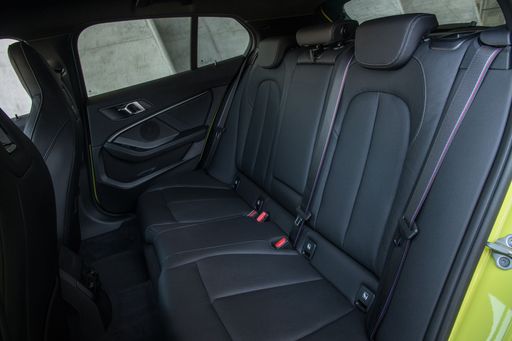 @ press.bmwgroup.com
@ press.bmwgroup.com
Costs and Consumption |
|
|---|---|
|
Price
about 28200 - 51000
£
|
Price
about 40900 - 81600
£
|
|
Consumption L/100km
4.3 - 7.6
L
|
Consumption L/100km
7.9 - 12.7
L
|
|
Consumption kWh/100km
-
|
Consumption kWh/100km
26.3 - 30.7
kWh
|
|
Electric Range
-
|
Electric Range
197 - 453
km
|
|
Battery Capacity
-
|
Battery Capacity
56 - 113
kWh
|
|
co2
112 - 173
g/km
|
co2
0, 241, 239, 235, 228, 247, 251, 242, 243, 248, 274, 280, 244, 285, 283, 222, 322, 249, 240, 246, 321, 220, 310, 312, 313, 234, 214, 333, 225, 233, 226, 231, 206, 207
g/km
|
|
Fuel tank capacity
49
L
|
Fuel tank capacity
71
L
|
Dimensions and Body |
|
|
Body Type
Hatchback
|
Body Type
Cargo Van
|
|
Seats
5
|
Seats
3
|
|
Doors
5
|
Doors
4
|
|
Curb weight
1465 - 1625
kg
|
Curb weight
2052 - 3166
kg
|
|
Trunk capacity
300 - 380
L
|
Trunk capacity
-
|
|
Length
4361
mm
|
Length
5932 - 7367
mm
|
|
Width
1800
mm
|
Width
1993
mm
|
|
Height
1459
mm
|
Height
2331 - 2663
mm
|
|
Payload
475 - 510
kg
|
Payload
577 - 2641
kg
|
Engine and Performance |
|
|
Engine Type
Diesel, Petrol MHEV, Diesel MHEV, Petrol
|
Engine Type
Electric, Diesel
|
|
Transmission
Automatic
|
Transmission
Automatic, Manuel
|
|
Transmission Detail
Automat. Schaltgetriebe (Doppelkupplung)
|
Transmission Detail
Reduction Gearbox, Manual Gearbox, Automatic Gearbox
|
|
Drive Type
Front-Wheel Drive, All-Wheel Drive
|
Drive Type
Rear-Wheel Drive, All-Wheel Drive
|
|
Power HP
122 - 300
HP
|
Power HP
114 - 204
HP
|
|
Acceleration 0-100km/h
4.9 - 9.8
s
|
Acceleration 0-100km/h
-
|
|
Max Speed
210 - 250
km/h
|
Max Speed
90
km/h
|
|
Torque
230 - 400
Nm
|
Torque
300 - 450
Nm
|
|
Number of Cylinders
3 - 4
|
Number of Cylinders
4
|
|
Power kW
90 - 221
kW
|
Power kW
84 - 150
kW
|
|
Engine capacity
1499 - 1998
cm3
|
Engine capacity
1950
cm3
|
|
Top speed
210 - 250
km/h
|
Top speed
90
km/h
|
General |
|
|
Model Year
2024
|
Model Year
2024
|
|
CO2 Efficiency Class
D, C, F
|
CO2 Efficiency Class
A, G
|
|
Brand
BMW
|
Brand
Mercedes-Benz
|
BMW 1 Series
Exploring the BMW 1 Series: A Compact Powerhouse
The latest iteration of the BMW 1 Series continues to set the benchmark for premium compact cars, blending cutting-edge technology and efficient performance. Known for its sporty design and responsive driving dynamics, the BMW 1 Series offers a range of options that cater to varied preferences and needs. Let’s delve into the technical details and innovations that make this vehicle a standout in its class.
Advanced Engine Variants and Performance
Under the hood, the BMW 1 Series offers a varied selection of powertrains, including diesel, petrol mild-hybrid, and pure petrol options. Power outputs range from 150 to an impressive 300 PS, allowing drivers to opt for either efficiency or sheer performance. The utilisation of mild-hybrid technology in some variants ensures a smooth and efficient drive, with increased torque available for dynamic acceleration.
All models come equipped with an Automatic Transmission, more specifically, a double-clutch gearbox for seamless gear transitions, offering a responsive drive whether you're navigating city streets or the open road. The top-of-the-line M135 variant boasts all-wheel drive capability, enhancing traction and control even further.
Efficient and Sustainable Driving
The BMW 1 Series is engineered for efficiency, achieving fuel consumption as low as 4.3 litres per 100 km in some diesel variants, while the petrol models also demonstrate competitive efficiency ratings. In terms of emissions, the range offers CO2 output figures between 112 to 173 g/km, garnering respectable CO2-efficiency ratings. Additionally, the mild-hybrid variants benefit from regenerative braking, which captures energy usually lost during braking and uses it to power the vehicle.
Innovative Technology and Comfort
Step inside the BMW 1 Series and you'll find a driver-focused cockpit outfitted with the latest in automotive technology. The infotainment system is hosted on a high-resolution display, providing easy access to navigation, entertainment, and vehicle settings. Key features like smartphone integration and voice control enhance the connectivity options available, creating a seamless link between driver and machine.
On the comfort front, the BMW 1 Series provides a refined interior experience, with high-quality materials and finishes. There's generous space for up to five passengers, alongside a versatile boot capacity that ranges from 300 to 380 litres, accommodating both daily errands and weekend getaways.
Design and Dimensions
The exterior design of the BMW 1 Series showcases its sporty lineage with a compact and agile silhouette. Measuring 4361 mm in length and 1800 mm in width, it maintains a confident road stance, while its height of 1459 mm contributes to a sleek, aerodynamic profile. Furthermore, the 1 Series is available in several stylistic options, providing aesthetics that can be customised to personal preference, including M Sport packages that introduce more aggressive styling cues.
Conclusion: A Harmony of Performance and Comfort
The BMW 1 Series deftly balances performance, efficiency, and comfort, making it a compelling choice for those in the market for a premium compact car. With its range of powerful engines, state-of-the-art technology, and stylish design, the BMW 1 Series remains a leader in its segment. Whether you prioritise sporty performance or efficient urban commuting, the 1 Series is equipped to deliver beyond expectations.
Mercedes Sprinter Transporter
The Evolution of the Mercedes-Benz Sprinter Transporter
The Mercedes-Benz Sprinter has been a staple in the commercial vehicle sector for decades, known for its reliability, versatility, and impressive load capacity. The latest iterations, including the fully electric eSprinter variants, demonstrate Mercedes-Benz's commitment to innovation and sustainability. These vehicles are designed to meet the needs of various business applications, providing numerous options to cater for all logistical demands.
Electrification and Engine Options
The Mercedes-Benz Sprinter Transporter offers a wide range of engine choices, from traditional diesel engines to state-of-the-art electric powertrains. Diesel options are available in capacities ranging from 114 PS to 190 PS, providing durable performance for long hauls while maintaining decent fuel efficiency, with consumption between 7.9 and 12.7 litres per 100 km. The electric eSprinter, on the other hand, boasts an output of either 136 PS or 204 PS, with a consumption of about 26.3 to 30.7 kWh per 100 km, and offers a range of up to 453 km depending on the battery size.
Technical Specifications and Safety Features
The Sprinter Transporter carries a diverse set of technical options to enhance both functionality and safety. The models are equipped with either manual or automatic transmissions, with choices in rear-wheel drive or all-wheel drive options. The eSprinter highlights innovative features such as regenerative braking and a robust electric motor delivering up to 450 Nm of torque.
On the safety front, the Sprinter includes features such as active distance assist, blind spot assist, and lane-keeping assist to ensure maximum security for drivers and goods alike.
Dimensions and Payload Capabilities
Designed for versatility, the Sprinter Transporter showcases various configurations in terms of dimensions and payload capacities. Lengths range between 5932 mm to 7367 mm, widths settle at 1993 mm, and heights vary from 2331 mm to 2663 mm, accommodating a range of business needs. With a payload capability of up to 2641 kg, the Sprinter is well suited for heavy-duty tasks, offering ample load volume and accessibility.
Inside the eSprinter Experience
Stepping into the eSprinter offers an advanced driving experience, tailored to the demands of modern day logistics. The electric variants include new telematics systems for fleet management, offering remote diagnostics and optimised communication between vehicles and back-office operations. Moreover, features such as a user-friendly cockpit, comfortable seating, and advanced climate control mirror the premium standards of Mercedes-Benz, ensuring drivers enjoy every aspect of their journey.
Conclusion: Mercedes-Benz Sprinter Leads the Charge
The Mercedes-Benz Sprinter remains at the forefront of the commercial vehicle market, offering a blend of power and innovation across its diesel and electric models. With its forward-thinking technology, the eSprinter sets new standards in environmental stewardship without compromising on performance or utility. It is an excellent choice for businesses looking to transition to more sustainable transport solutions while benefiting from the reliability and quality that Mercedes-Benz is known for.
